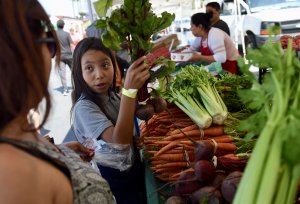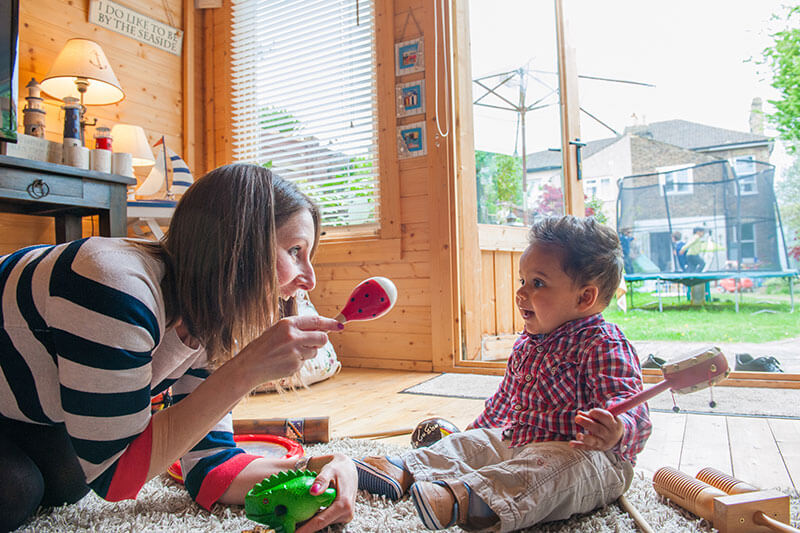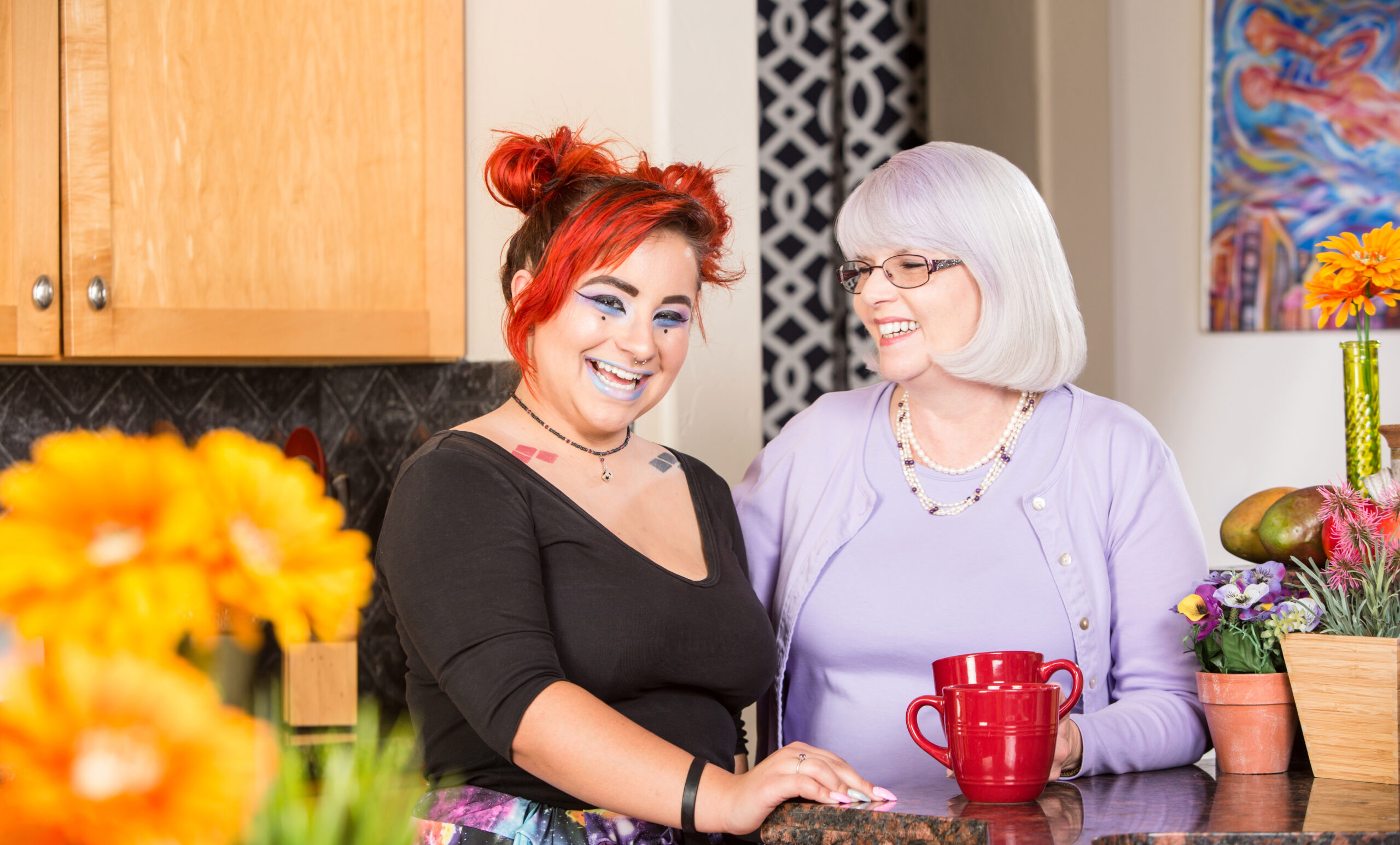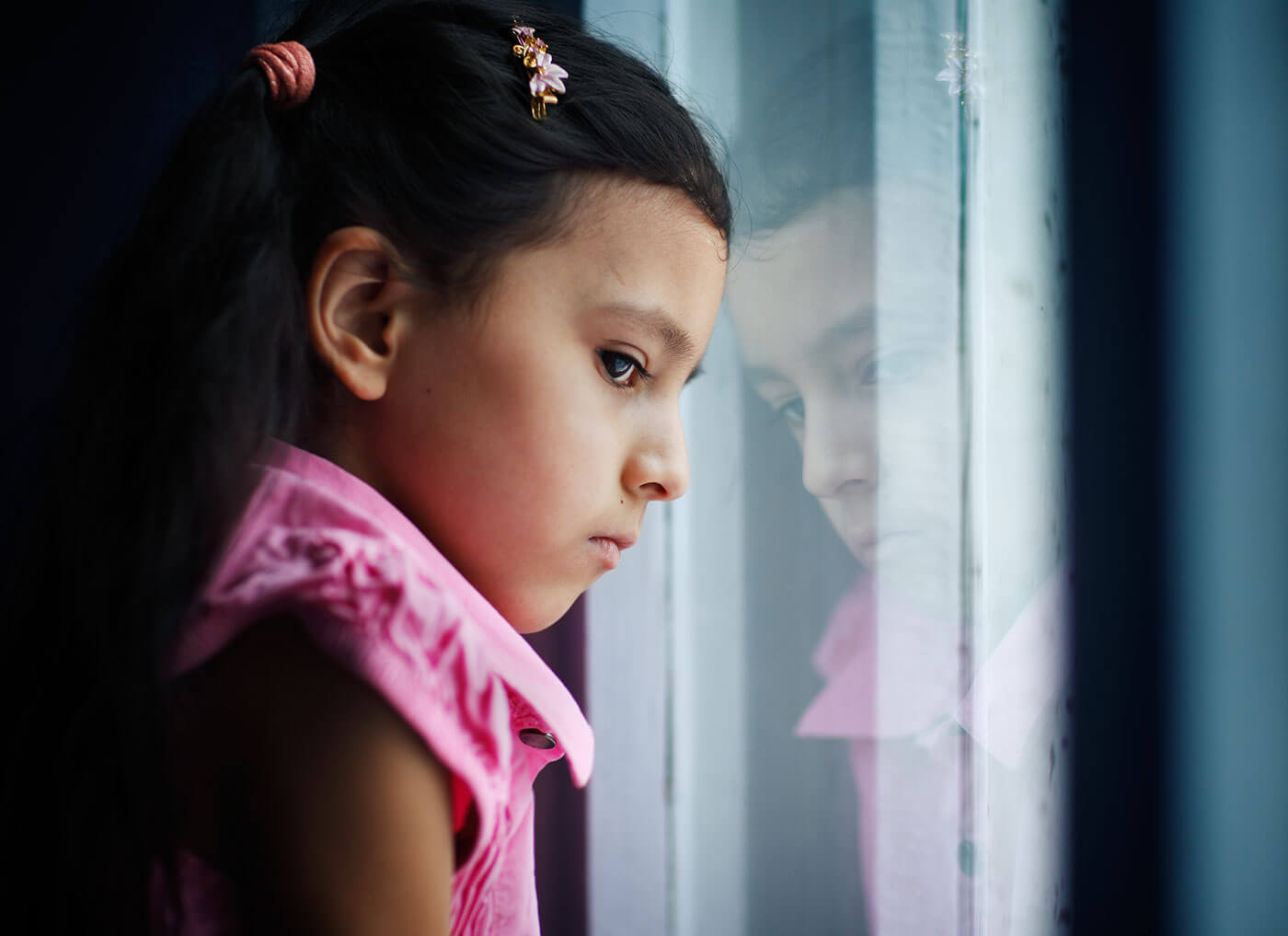
The Los Angeles County Department of Children and Family Services is here to ensure the safety and wellbeing of all children living in foster care, as well as to support foster parents, relative caregivers and Resource Families through the DCFS process, and to provide access to the tools needed to care for vulnerable children.
Jump To SectionGrowing up, Sam always felt out of place. Though he didn’t know it at the time, being gay in a small town with a family who couldn’t understand would mean a life of hardship, of feeling different, and of rooting for the underdog. It’s for this reason Sam was compelled to a life of fostering.
“I felt I was different in some way, not realizing it was because I was gay […] so I want children born with the cards stacked against them, whether it’s not having prenatal care, drugs, not taking care of themselves – no child deserves that, no matter their race, religion, or anything else.”
When Sam started fostering, he understood the long road he would face as an LGBTQ, single man, looking to adopt. After having two newborns placed with him, and subsequently, having those newborns leave to be reunited with their families, Sam felt the sting of loss, while knowing that this was a very real possibility when fostering newborn babies.
“My determination and dream was to have a family. After [the second child was removed], it came to a point when I was asking, ‘why am I doing this to myself?’. But I believe that in all the heartbreak I’ve experienced, the amount of work I did for these babies surpassed all that heartache. I would much rather experience the heartbreak, than not have had them with me.”
Finally, Sam got the call – a tiny safe surrender baby looking for a home. Weeks later, Sam is finally on the road to adoption thanks to the perfect storm of support from his agency, his social worker at DCFS, and the circumstances surrounding a safe surrender baby. Through all the heartache, Sam is one step closer to the family he’s always wanted, all the while knowing how many families he’s helped along the way.
*In order to protect the anonymity and privacy of our families, names have been changed and photos are randomized.
Home > Caregivers > Foster Parent Resources
When a child is placed in your home, you will begin receiving a monthly stipend to cover the cost of care for that child. If you are not yet approved as a Resource Family but a child has been placed in your home, you will receive temporary funding for up to a year, or until you are approved. Learn more about Resource Family Funding by visiting the links below.
If you are not receiving funding or are receiving the wrong amount of funding, please call the Resource Family Helpline at 800-697-4444 or email FCHL@dcfs.lacounty.gov and eligibility workers will be able to look up your case and payment status.

CalFresh, known federally as the Supplemental Nutrition Assistance Program (SNAP), provides low-income households with monthly benefits to purchase food. If you are a resource family or relative caregiver, you may be eligible to receive CalFresh.
When you apply for CalFresh, you apply for your household – everyone who lives with you and “buys and cooks” their food together.

Upon placement, many caregivers who work, attend school, or have responsibilities beyond the scope of parental duties need immediate child care assistance. The Emergency Child Care Bridge Program ensures short-term child care services with licensed and license-exempt child care providers located within Los Angeles County.
If you qualify, you may receive a child care voucher or payment to help pay for child care costs for foster children ages 0-12, children with exceptional needs and severely disabled children up to age 21. This voucher is available for six months, but the county is allowed to extend the voucher for an additional six months if you are unable to secure long-term, subsidized child care.
Upon acceptance to the Emergency Child Care Bridge Program, you will be assigned a child care systems navigator. The navigator will assist you with finding a child care provider, securing a subsidized child care placement if eligible, completing child care program applications and developing a plan for long-term child care appropriate to the child’s age and needs. Your child care systems navigator will make every effort to ensure continuity of child care with the same child care provider. However, it is possible that, once the full six to twelve months of Emergency Child Care Bridge Program eligibility are exhausted, a new long-term child care option with another child care provider will need to be secured.
To apply for the Emergency Child Care Bridge Program please contact your social worker.
Respite care allows you to take a short, temporary break. Respite means temporary care outside of the home of the resource family where the child is placed for a period longer than 24 hours. Respite care generally cannot exceed 72 hours. However, it may be extended up to 14 days in any month if necessary in order to allow for the child’s continued placement with you.
In most cases, respite care must be provided by an Approved Resource Family or a DCFS certified respite care provider. However, when the need for respite care is unanticipated and the proposed respite caregiver is a relative or extended family member who has an established relationship with the child, only a background check is required.
Let the child’s social worker or probation officer know as soon as you anticipate the need for respite care to allow time to make arrangements that meet the requirements.

Caring for a child or youth that is a LAUSD student? Be sure to identify the Foster Youth Achievement Program Counselor(s) assigned to their school. Operating under their mission “To ensure that all LAUSD students are enrolled, attending, engaged, and on-track to graduate,” Foster Youth Counselors provide a range of services to help advance “educational outcomes and academic achievement for students living in foster care.” Contact the Foster Youth Achievement Program at (213) 241- 3552.
There are countless tutoring programs, homework help, and other educational resources available to foster youth.

Research shows that family and caregivers who create accepting and supportive environments can improve the health, mental health, self-esteem and wellbeing of LGBTQ+ youth. To help create a home where LGBTQ+ youth are safe, it is important to support and accept the young people in your care without bias. There are resources available to help you be the affirming caregiver that youth need.

If the child in your care is experiencing any effects of trauma, depression, anxiety or other mental health issues, there are several DCFS programs that can help.
Intensive Field Capable Clinical Service (IFCCS) is an intensive mental health program from the Department of Mental Health that can help youth identify their strengths and mental health needs. IFCCS is available to foster youth between the ages of 0-21 and includes access to a:
If the child in your care is in need of emergency psychiatric care, Psychiatric Emergency Response Teams (PMRT) are comprised of Department of Mental Health (DMH) clinical staff assigned to specific mobile response teams located in the eight Los Angeles County Service Areas. Teams have legal authority to perform evaluations for the involuntary detention of mentally disordered adults and children.
If a DCFS dependent child is hospitalized in an acute psychiatric hospital, DCFS and DMH staff will coordinate discharge planning with hospital staff to ensure appropriate mental health services are linked upon discharge.
FURS includes a statewide hotline as well as local mobile response teams to provide immediate trauma-informed support to current and former foster youth and their caregivers. For 24/7 phone or in-person support, you can call or text FURS at 1-833-939-FURS (1-833-939-3877) for any issues, big or small.
Both the statewide hotline and local mobile response teams are available 24/7/365.
DCFS takes the mental healthcare of children in foster care very seriously. As such, there are a variety of screening programs and resources available to youth directly.

DCFS stands ready to assist caregivers to meet the needs of the children and youth in their care, but knowing who to call and when can be a challenge. The DCFS Resources for Caregivers document can help.
If you are still not sure who to call, dial the Caregiver Warmline at (877) 323-7165 or email warmline@dcfs.lacounty.gov.
Select a question below to be directed to an answer.